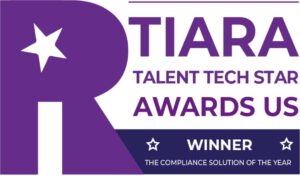Before the COVID-19 pandemic, working remotely was something of an anomaly. Few people had full-time remote positions. Fast forward to 2023, and 27% of new job postings are for remote workers.
The rise of remote work introduces compliance challenges for human resources departments, particularly those hiring employees from across the country.
States vary in their approaches to payroll taxes, benefits, termination and final wage, EEO and reasonable accommodations, onboarding, and leave requirements. To ensure that your company doesn’t run afoul of state laws and regulations, engaging in multistate HR compliance practices and processes is critical.
What to Know About Multistate HR Compliance
Before hiring remote workers in states where your business hasn’t previously operated, taking a holistic look at state policies is essential. Some states have few regulations to worry about, while others, like New York and California, have extensive labor laws.
A few areas to pay particular attention to include taxes, pay, unpaid leave, and benefits. You’ll also want to consider the state’s rules concerning unemployment insurance and worker’s compensation.
Most states have websites that HR professionals can refer to so they have a better understanding of state laws. But, many times,the law is unclear, so creating effective compliance management best practices may be advisable, especially if you plan to recruit employees across multiple states.
Not adhering to state laws, even unknowingly, can lead to legal issues that adversely affect your organization. You don’t want your organization to end up in a lawsuit or face fines you could’ve avoided had you developed proper internal practices and processes.
Common Multistate Compliance Issues
While there are multiple factors to consider when hiring people across state lines, a few compliance issues crop up more often than others.
Minimum Wage
While the federal government establishes a minimum wage, which is currently $7.25 per hour, states often enact their own minimum wage policies. A state’s minimum wage rate can be much higher than the federal government’s rate.
In some states, cities and counties can set minimum wage rates. For instance, Seattle has a minimum wage of $18.69 per hour for large employers, while Washington State’s minimum wage is $15.74 per hour.
State Income Tax Withholding
All states have different withholding requirements. Some states require workers to pay income tax only in their state. Other states consider the company’s location the primary income tax source.
In some cases, employees are subject to income tax both in their state and in their employer’s home state, unless there’s an existing reciprocal agreement between the two states.
Discrimination Laws
Employers must pay close attention to their hiring practices to ensure that they don’t inadvertently discriminate against a candidate. While federal law has extensive regulations concerning discrimination, including Title VII and the Equal Pay Act, some states go even further.
For instance, it’s illegal to ask for an applicant’s salary history or require the candidate to provide criminal history details in states like California. Employers should also avoid questions revealing the sexual orientation of an applicant or employee, along with other protected classes; states’ Civil Rights Acts can often exceed Title VII’s definition of a protected class.
Sexual Harassment Training
New York and California require employers with more than 15 workers to provide mandatory sexual harassment training to new workers. Training can be online or in person but must adhere to the content requirements specified by the law.
Employers must keep records of each employee’s participation in the training. They must also have a policy concerning sexual harassment prevention that’s accessible to all employees and provide a way for affected employees to report a violation of the policy.
Sick Leave
The federal government does not require employers to give their workers sick leave. While many employers provide sick leave regardless of federal requirements, some states have regulations requiring organizations to provide a certain amount.
For instance, Montgomery County Maryland requires all employers with more than 15 employees to provide one hour of paid sick leave for every 30 hours worked. Employers with fewer than 15 employees must provide one hour of sick leave (unpaid) for every 30 hours worked.
Workers’ Compensation Insurance
Workers’ compensation insurance is another area where state laws diverge. Some states require workers’ compensation insurance only when there are a specific number of employees. In contrast, others require coverage based on the employer’s industry or whether independent contractors are on the job.
Employers can purchase a separate workers’ compensation policy for each state where they have employees or buy a policy that provides coverage across all 50 states.
Strategies for Navigating Multistate HR Regulations
You can protect your organization from potential legal repercussions brought on by non-compliant multistate employer policies in a few ways.
Hire an In-House HR Professional with Experience Navigating Multistate Laws
Some employers prefer to handle their HR compliance in-house. If your organization chooses an in-house strategy, look for someone with extensive experience handling multistate HR compliance.
As an HR manager, it’s important to be confident in knowing that you have multistate compliance even if there are only a few employees that are in other states.
Contract Your Multistate Compliance to an Experienced HR Partner
Many HR organizations can manage your multistate compliance. Even if you have an on-site HR team, sometimes your employees may need assistance from professional HR consulting firms, whom they can turn to when questions arise.
With the aid of a qualified consulting firm, you can rest easy knowing that you have experienced professionals who can keep you in compliance.
Invest in HR Compliance Software
VirgilHR provides compliance software for organizations that need to ensure their multistate practices are in good standing. The easy-to-use software notifies and advises HR teams of laws that may impact payroll, leave, and other compliance factors.
HR compliance software is less expensive than other options and allows you to rest easy knowing that you’re following all the laws that apply to your organization.
Complying with Multistate Regulations Doesn’t Have to Be Complex
While there’s a lot to digest regarding multistate labor laws, having a strategy can alleviate potential problems. If you plan to hire employees across state lines (or already have them in place), consider using the HR compliance software solution from VirgilHR. Our platform ensures that you’re fully compliant with federal, state, and local laws.






